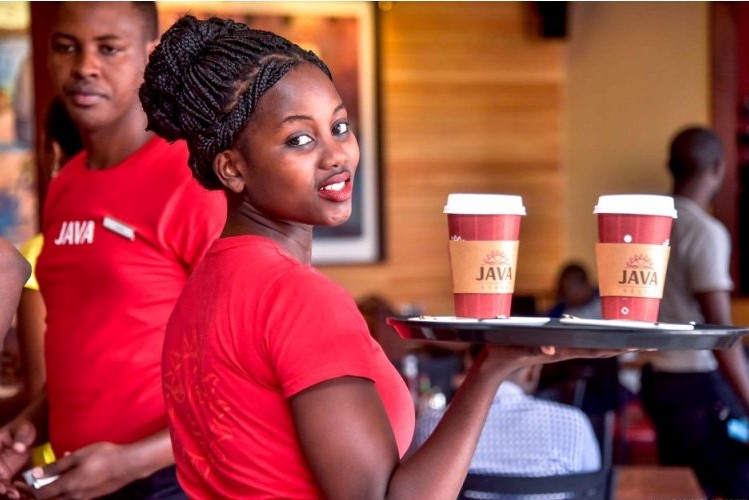A number of international coffee outlets have entered the Kenyan market intensifying competition with local ones as citizens’ love for the beverage surges.
Several global outlets and the local ones have established stores across the east African nation in the past years, exciting the once hitherto lackluster market.
Burger King, Dominos, Dormans, Subway, Java House and ArtCaffe are some of international shops selling coffee in the country, with the businesses growing thanks to status-driven young consumers.
There are also tens of other local brands that sell coffee across the country’s major towns namely Kisumu, Mombasa and Nairobi. They include Savannah, Café Espresso and Café Arabika.
While initially the global brands targeted the high-end market, the outlets have changed their business models, and are currently going for the middle-income segment where incomes are rising.
In Nairobi, that the local coffee market is growing is an open secret going by the number of outlets.
Along Mama Ngina Street in the central business district, one counts over five coffee outlets.
It is the same case for Kimathi and Banda streets, with tens of hotels and restaurants and fast-food joints selling the drink.
Kenya is a coffee growing country, exporting one of the best quality Arabica produce to the world with the sector contributing to the livelihoods of over 700,000 smallholder growers, according to the Coffee Directorate.
However, until recently, consumption of the drink was low, with data from the Coffee Directorate showing local intake of the drink has risen exponentially in the last decade.
According to the directorate, local consumption stood at 8,498 60kg bags (509.90 metric tonnes) in 2009, rising over the years to stand at 12,405 bags (744 metric tonnes) in 2014 and in 2018, it topped 18,396 bags (1,103.76 metric tonnes).
Kenyans have certainly woken up and smelled the coffee, with citizens flocking coffee outlets in droves creating a fast-rising coffee drinking culture.
Erick Wanyama, an insurance agent, is among citizens who flock coffee shops every evening.
“My nature of work involves meeting various clients. I love holding the meetings in coffee shops because, first they have excellent, tasty drink, second the environment is cool thanks to the comfy couches and third, most coffee shops have free Wi-Fi, which means it becomes easy to access the internet,” he said.
“Initially, when one visited the shop, they would be offered the processed drink but these days you are offered the locally brewed coffee,” he noted.
A mug of coffee goes from Ksh 250 (US$2.5) in local outlets to over Ksh 1,000 (US$10) in the global outlets. The cost depends on the quality of coffee one wants.
Paul Smith, the chief executive of Java House, which is Kenya’s leading coffee outlet with 65 branches across East Africa, said in a recent interview that the country’s coffee market is growing fast, with the firm currently focusing on counties in its expansion drive.
Read: Relief as government releases billions owed to media houses
The country’s coffee is grown on 115,570 hectares in 32 out of a total of 47 counties. In 2018, Kenya exported 43.3 million kilos of coffee worth Ksh 20.6 billion (US$228 million), according to the Coffee Directorate.












Leave a comment